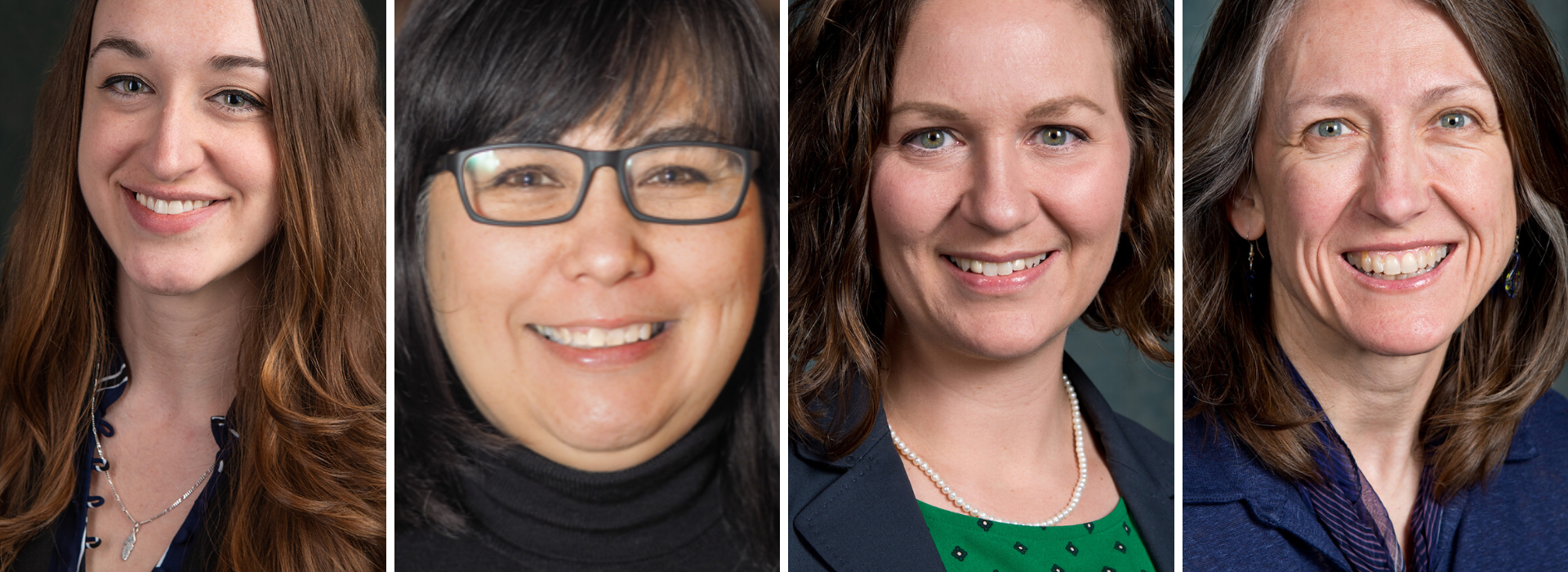
Addressing Social Determinants of Health in the Age of COVID-19
Historically, confronting the social and structural determinants of health in medical education has been inadequately addressed in the physician workforce.
The call-to-action, led by Alexandra Zachwieja, PhD, assistant professor in the University of Minnesota Medical School’s Department of Biomedical Sciences on the Duluth campus, works in partnership with Kendra Nordgren, PhD, assistant professor in the Department of Biomedical Sciences, and Cathy McCarty, PhD, MPH, professor in the Department of Family Medicine and Biobehavioral Health. The trio look to change the educational landscape by using the COVID-19 pandemic to introduce providers to how the social determinants of health affect patient outcomes, both in pandemics and overall.
The goal of this project is to make the online course available for healthcare providers and other interested members of the community. Supported by a COVID-19 Medical Education Innovation Grant through the Medical School, the team is building upon recent initiatives spearheaded by faculty members in the Department of Family Medicine and Biobehavioral Health, along with Mary Owen, MD, director for the Center of American Indian and Minority Health, who have been able to integrate conversations around social healthcare inequalities into the second-year curriculum.
“The need to do this course really stems from the mission of our campus to serve the healthcare needs of rural, Native American and minority communities through family medicine,” Dr. Zachwieja said. “The new coronavirus has had a severely disproportionate impact on these communities who just don’t have the same access to resources because of these structural inequalities.”
In the age of COVID-19, the online course needed to be designed for asynchronous learning, allowing time for healthcare professionals to work through the topics at their own pace with self-reflection and peer conversations. The course will also offer providers Continuing Medical Education credit for their enrollment.
Each module will represent five critical social determinants of health, outlined by the U.S. Office of Disease Prevention and Health Promotion around economic stability, education, health and healthcare, neighborhood environment and community settings. “We want to navigate these topics sensitively,” Dr. Zachwieja said. “We’re hoping to bring in community stakeholders into this project and hear from them. What are their concerns about coming into the clinic and seeing a doctor? What training would they like their medical professionals to have on any of these issues?”
The team emphasizes that the course scenarios will be focused on addressing the inequalities and impacts that COVID-19 has had on communities with the realization that training will live beyond the pandemic.
“We will also be looking into our existing curriculum in the fall and threading these topics throughout the first two years of medical education,” Dr. Nordgren said, who is also assistant dean of admissions for the Medical School, Duluth campus. “Through this course, providers will be better equipped to serve as advocates and elevate the standard for patient care.”